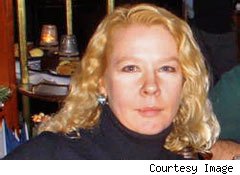 On Sept. 11, 2001, Gail’s husband went to work at the World Trade Center. He never came home again.
On Sept. 11, 2001, Gail’s husband went to work at the World Trade Center. He never came home again.
During the blur of grief and confusion, Gail, then a stay-at-home mom with a 2-year-old son, realized that she was now her family’s de facto chief financial officer.
“We had just contracted to sell our condo and buy a house from my grandmother’s estate,” says Gail, now 47. “Jointly owned assets had to be moved into my name. And, of course, my husband’s paycheck had been stopped immediately. I was terrified. I didn’t know whether I had any income at all. I knew that there was life insurance, but aside from that, as far as I knew, I was broke.”
She met with a broker for the first time and remembers thinking, “I can’t screw this up.”
She didn’t. In fact, what started as a tragedy became a lesson in resilience and fiscal fortitude.
First, the Happy Ending
Gail just celebrated her fourth wedding anniversary. “I still can’t believe how lucky I’ve been in love,” she says. “Some people don’t find it even once; I’ve had it twice.” She is now a black-belt mixed martial arts instructor with her own dojo, and is a freelance writer covering art and museums.
Today, Gail is also a bona fide investor. But getting to this point — dealing with confusing financial hurdles and establishing an investing style that is best for her — was a challenge. Below, she describes her journey.
Q: Describe the moment you realized that you needed to take firm control of your own financial future.
Gail: I was closing on the condo sale and the house purchase and something funny happened. It was October 2001, and I was sitting there with two Realtors, two attorneys, a title search guy, you know, a pretty standard crew for a closing. Here were all these suits sitting around asking each other over and over: “How can we make money in this environment?” I raised my head and said, “Buy real estate investment trusts, preferably with a strong presence in Manhattan commercial real estate.”
They all turned to look at me as if I had suddenly sprouted a second head.
I explained: A lot of commercial space was gone now. A lot more was closed for the duration. All those companies were going to have to go somewhere, no? There was total silence. And then they started talking to each other again. I doubt they took one word I said seriously — and these were realty people. You would think they could see it.
It was the synthesis of these two things — a sudden influx of money, and the near simultaneous realization that most guys in suits are idiots — that brought me to The Motley Fool.
How did you start investing in the stock market?
adsonar_placementId=1505951;adsonar_pid=1990767;adsonar_ps=-1;adsonar_zw=242;adsonar_zh=252;adsonar_jv=’ads.tw.adsonar.com’;
Gail: I didn’t invest in stocks directly at first. I started with a portfolio that included a conservative income-producing equities fund, an S&P index fund, a bond index fund, and a couple of Treasury zero-coupon bonds. The blend worked out pretty well, actually. During the recent recession, that original port was never negative, though it lost most of its gains. I was
delighted with that, all things considered.
My approach to investing is to “set it and forget it.” I like dividend producers, especially large caps, and I like value stocks when I can find them. I buy those, or funds holding those, reinvest the dividends, and pretend they aren’t there.
I try not to buy anything I don’t understand. Where I’ve made exceptions, I’ve generally come out a loser. I still keep a big chunk in the S&P index. And those zeroes are still just sitting there like an insurance policy: I like their predictability.
In an argument is made that women are better suited temperamentally to be great investors — they are generally more patient, take less risk, and hold for the long term. Do you think any of that applies to you?
Gail: Losing my husband made me very risk averse in some ways and adventurous in others. I wasn’t at all athletic then, for instance, and yet I have a black belt now. I have said to other people that one thing about having something like 9/11 happen to you is that you can’t really say anymore, “Wow, this is just the worst day ever.” No matter what else comes up, there’s this underlying awareness that you’re actually doing OK, comparatively speaking.
I suppose that colors my investments, too. [When I started investing] I invested with an eye toward long-term retention rather than growth. I may have missed some go-go opportunities during the growth years, but I didn’t get badly hurt later, and that’s really all I was aiming for.
I’m perfectly happy with retention of value. I begrudge my money the amount of attention I would have to give it to get real growth, because the people around me are way more important.
My late husband and I were very concerned with money, especially at the end with that big house purchase right upon us. I regret that now because it meant that we weren’t really focused on each other the way we should have been and then one day, he was gone.
That’s a terrible thing to have missed — that opportunity to really express how you feel — and I work to ensure that it doesn’t happen again with the loved ones I have around me now.


Leave a Reply